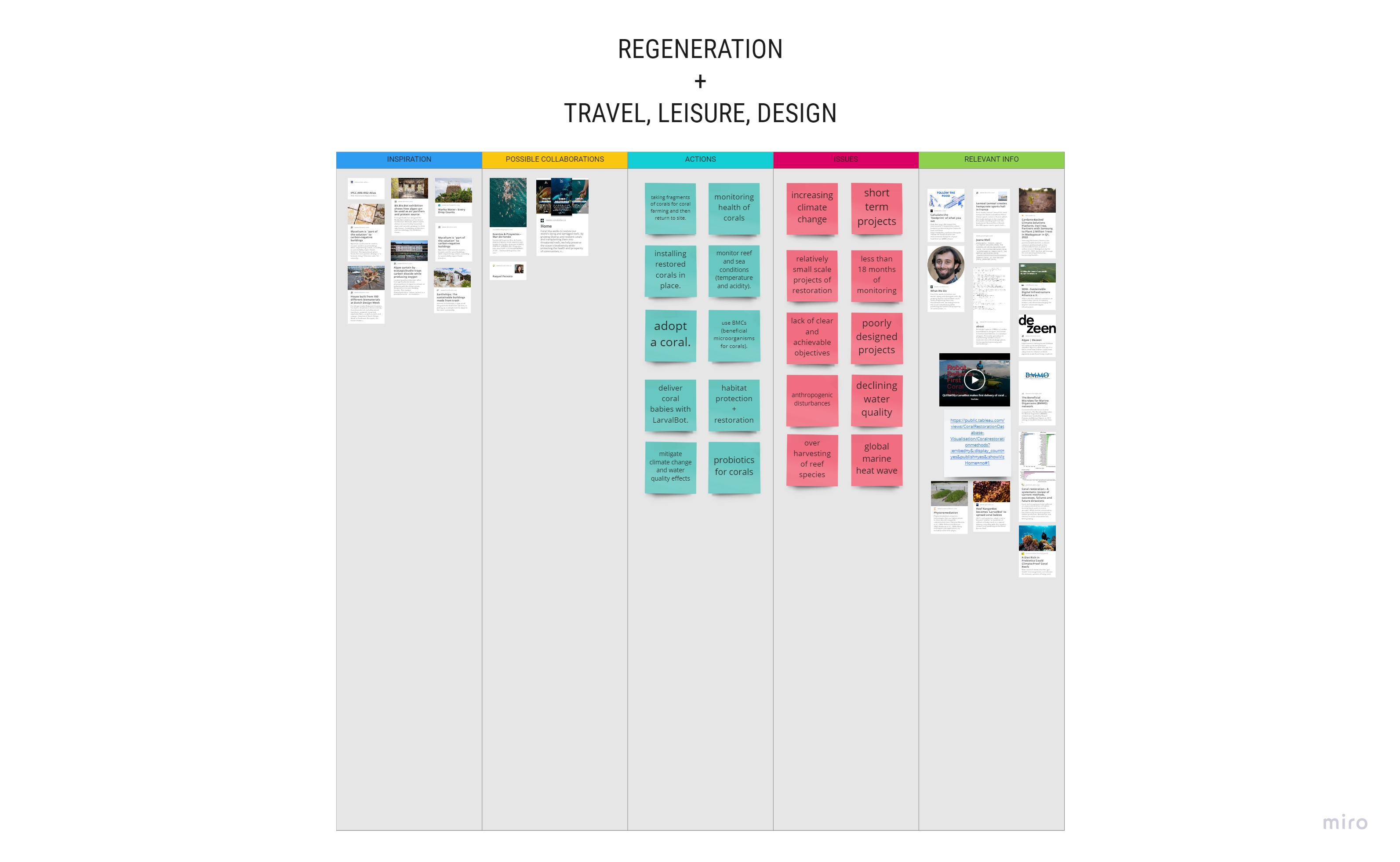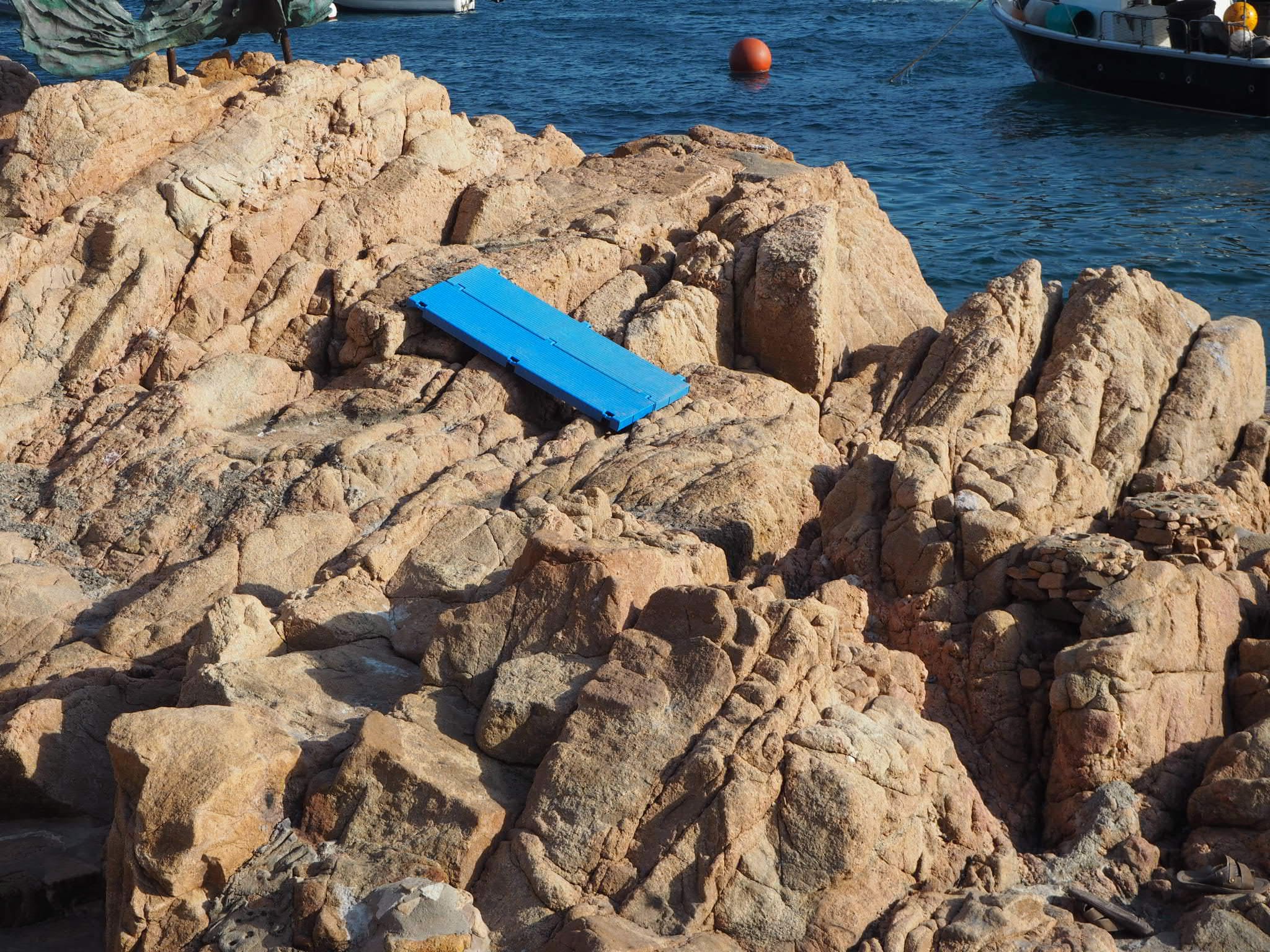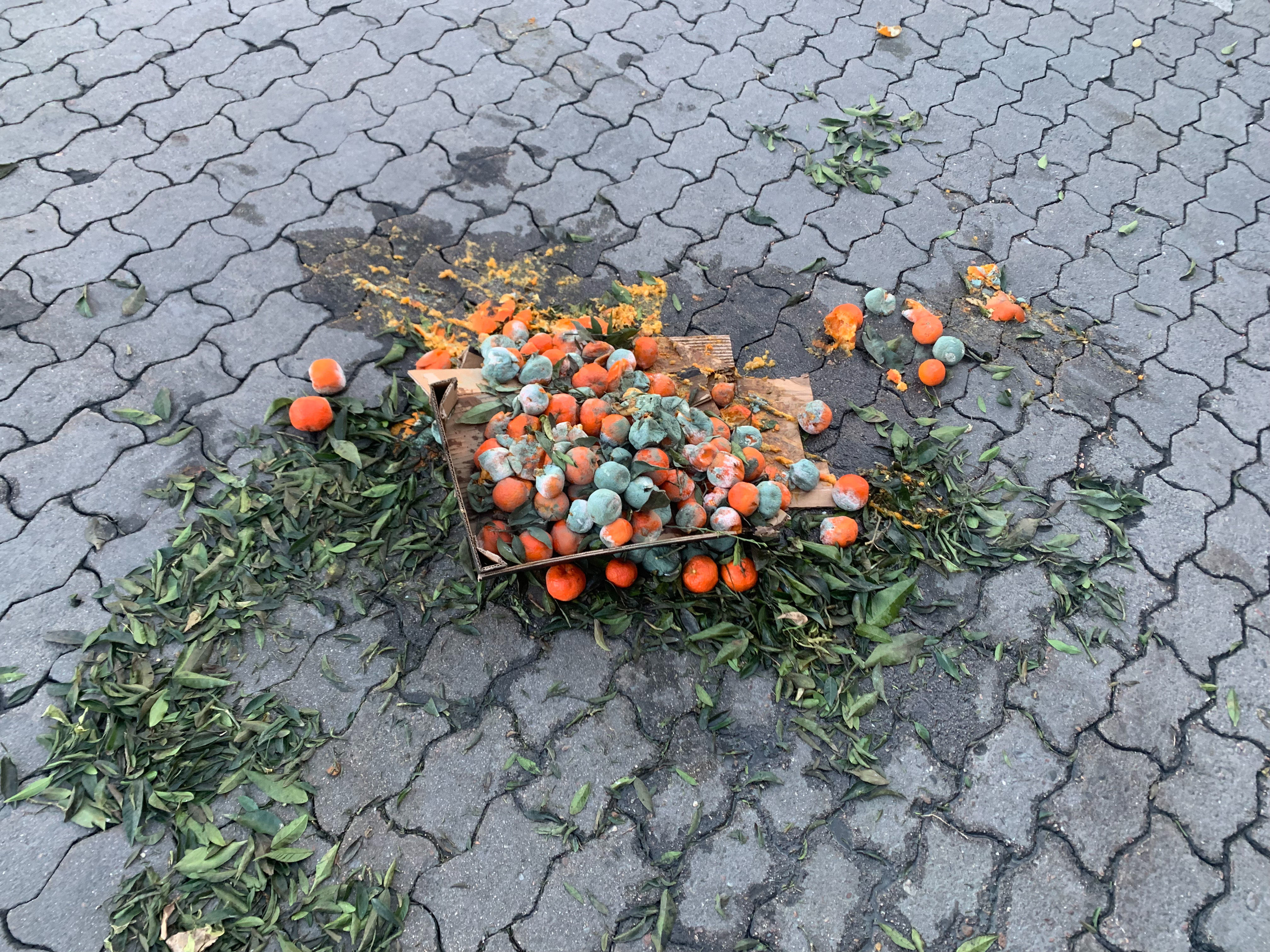
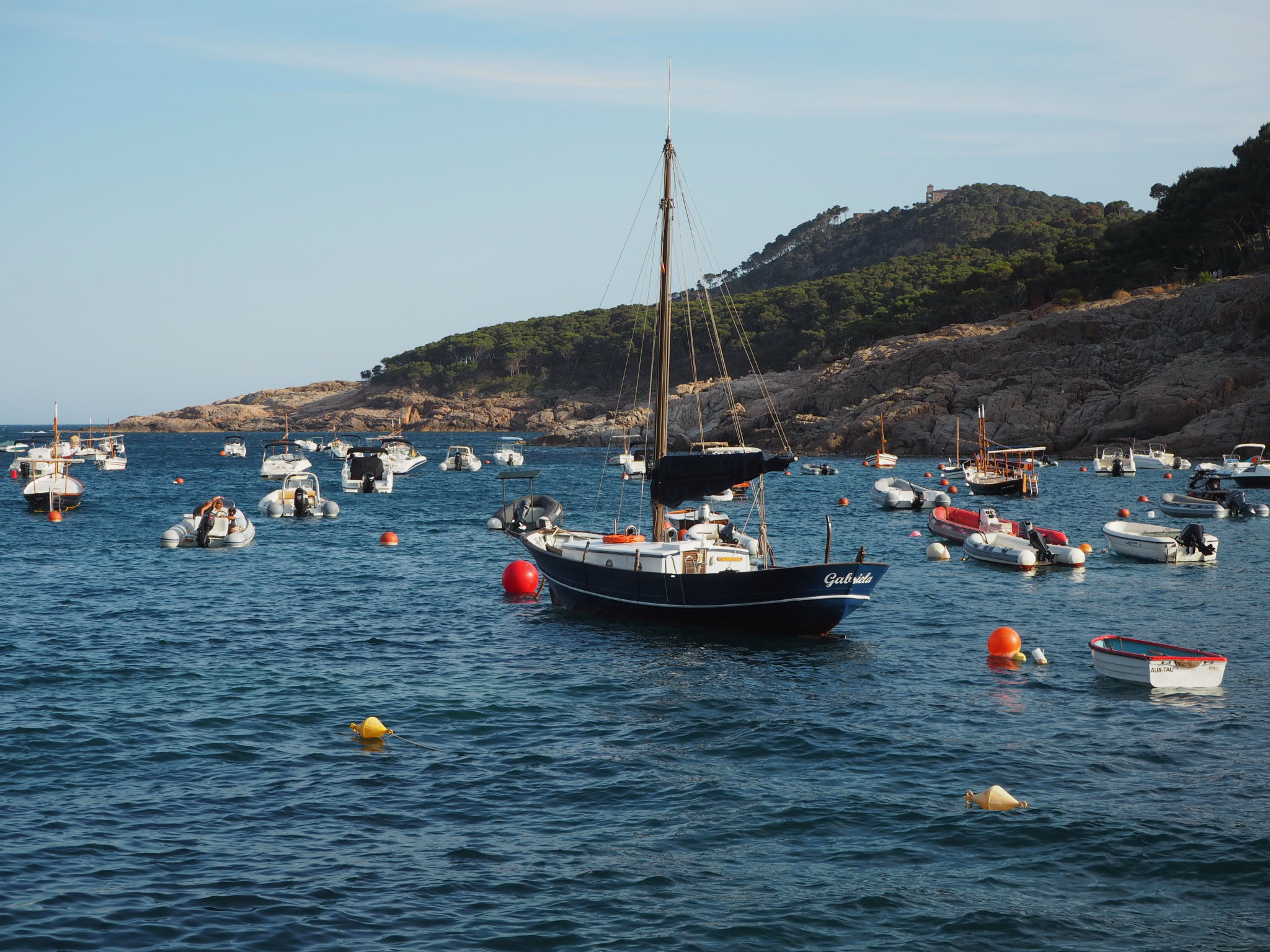 REFLECTIONS OF 1st TERM.
REFLECTIONS OF 1st TERM.
Ripe conversations helped me get more in context of the actual situation we are living regarding food waste. In some way it also helped me realise that I like the subject but don't really want to dig deeper into this. I think this subject for me is just part of the whole cycle we need to improve in order to live a more sustainable life. I still have more interest in doing actions that help restore an environment, this while traveling or just doing recreation activities. Some interesting feedback I got on the design dialogues is the idea of collaborating with tourism agencies that could offer this type of activities in which you not only visit an ecosystem but you help restore it. So that's where I'll head next. I found an organization in Mallorca called Mar de Fondo.
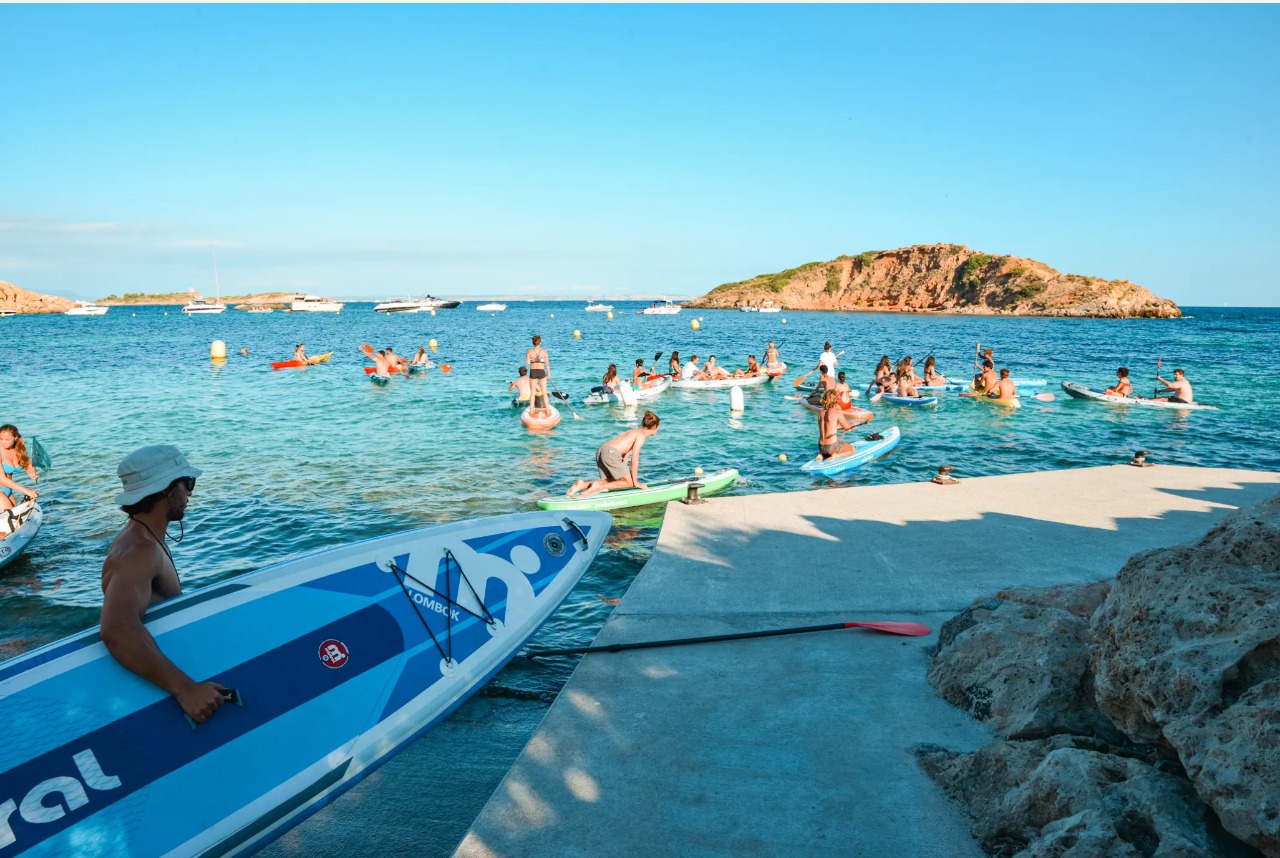 This organization helps people reconnect with the sea through aquatic sports while also taking care of the natural habitat they visit. I'm really interested in what actions are they doing and see if I could take them further. For what I've seen in their website they usually recollect waste from the ocean while going out diving or kayaking but I would like to take the action further. Also, I think for now I need to find another organization in Barcelona so the interventions I do can be closer to me and done more often. I found a surf school in Barcelona called Blue Salt. They do activities like Paddle Board and Surf but also engage in social activities, healthy living, art, knowledge, care and passion for the sea. I think I will contact them and see if they're interested in collaborating doing activities in their school in which we can engage in regenerative activities. I also think I need to research deeper into existing problems in the Barcelona ecosystem, in this case the sea or other natural concerns happening here.
This organization helps people reconnect with the sea through aquatic sports while also taking care of the natural habitat they visit. I'm really interested in what actions are they doing and see if I could take them further. For what I've seen in their website they usually recollect waste from the ocean while going out diving or kayaking but I would like to take the action further. Also, I think for now I need to find another organization in Barcelona so the interventions I do can be closer to me and done more often. I found a surf school in Barcelona called Blue Salt. They do activities like Paddle Board and Surf but also engage in social activities, healthy living, art, knowledge, care and passion for the sea. I think I will contact them and see if they're interested in collaborating doing activities in their school in which we can engage in regenerative activities. I also think I need to research deeper into existing problems in the Barcelona ecosystem, in this case the sea or other natural concerns happening here.
I've been doing some research focusing on a specific species which is Corals and the threats they face and how to help them regenerate. As I talked about in the BioZero blog, massive coral bleaching is a huge problem right now. The climate crisis has increased the sea temperature causing corals to stress and for that reason the Zooxanthelle, which they make symbiosis with and gives them their rich color, leave. Researchers are now finding different solutions and approaches towards this problem. One of the projects I found is called Coral Vita and it's based in the Bahamas. They are trying to repair the ecosystem by using a microfragmenting process that allows them to grow coral at a higher rate. In this way coral will reach maturity in just months and not decades, they can then be returned to its site. They also develop assisted evolution in which they train corals to survive in warmer and more acidic ocean conditions, making them more resilient towards climate change. Some of the key actions they do is they study reef's health and conditions, install corals once they are mature and monitor them afterwards. These are steps of the process where tourism and leisure could aid.
The study of probiotics for Corals has also been attracting a lot of attention. BMC's (beneficial microorganisms for corals) can help ameliorate the harsh conditions corals are enduring, preventing bleaching in high temperatures. BMMO is a network of researchers for marine organisms and they are testing this solution in order to protect this corals. There's also another study done in the Red Sea by the King Abdullah University of Science and Technology in Saudi Arabia. This project led by Raquel Peixoto is studying how by inoculating corals with probiotics can make them more resilient to environmental threats. The levels they have tested are heat stress, pathogens and oil spills and this treatment can improve their survival rates by 40%. The question now is how to apply that in field. This gives a great opportunity for intervention from the design point of view. The threat right now relates to the fact that corals are the basis of the marine ecosystem, they only cover 0.1% of the ocean floor but 34% of known marine species depend on them. They play a really important role in the regulation of the global climate. The thing with probiotics is that they work as a preventative care method, so we need to pay special attention and monitor closely corals so they can receive the treatment in the right time. Climate crisis is a big threat to corals, if temperature rises by 2 degrees, 90% of the corals are certain to die.
This efforts must be considered as a side action trying the help the already damaged ecosystem but this doesn't mean that attention from erradicating the main cause of this problem should be ignored. We have to try our best to attack the climate crisis that is causing this conditions that harm our ecosystem. Everything must be done in direct collaboration and joined efforts.
NEXT STEPS.After doing this research and analyzing what actions are being done globally at the moment, I reflected on the next actions I want to develop. First I need to start by writing down objectives and possible futures that can emerge from my project. I already have listed some of the places I would like to get in contact with and discuss possible solutions for the actual marine environmental crisis. I believe there is a lot of information out there and a group of amazing researchers doing everything they can to bioremediate the ecosystem. What we need right now is a way of implementing this efforts at site and more helping hands. I believe that there's a lot of people that would love to contribute towards a positive impact in the environment if given the chance. We just have to create that chance and involve people in regenerating the places they visit so we can save them.
For my first intervention this term I would like to experiment with biomaterials that aid in phytoremediation. Phytoremediation is the process of using green plants to remove pollutants from the environment. Some plants can absorb contaminants like toxic metals thus cleaning the waters. Eventually the above-ground parts of the plant are harvested and metal is recovered from the plant biomass. This is referred to as phytomining. I would like to do this exploration in order to obtain a biomaterial that could be applied to products used in marine leisure like flippers, snorkels, swimsuits, scuba suits, paddle boards, surfboards, etc. After this I would like to explore the activity on its own, gathering a group of people and collaborating with an organization like Blue Salt School in order to do a day exploration into the sea and observe marine species and monitor them. In this way aidinig active observation of the ecosystem status. After this step I would like to collaborate with the Research Centers stated before and discus possible ways of implementing their solutions in site and how could design help in developing this solution.
